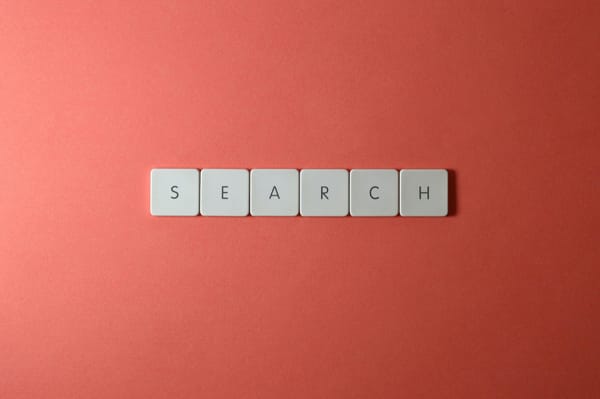How to Avoid Publishers Clearing House Scams Like a Real Winner

Publishers Clearing House (PCH) is a well-known, legitimate sweepstakes company that has awarded over half a billion dollars in prizes since its founding in 1953. However, scammers frequently exploit the PCH name to target and deceive people, particularly senior citizens and those less familiar with cybercrime tactics.
In 2022, the Federal Trade Commission (FTC) reported that consumers lost nearly $8.8 billion to various scams, including prize and lottery scams, which marked an increase of more than 30% compared to 2021. In 2023, it was reported that people lost approximately $301 million to prize scams, with an average loss of $907 per person.
Recognizing the difference between legitimate sweepstakes and scams will help you protect yourself and your family.
Related: Cha-ching! Bitdefender Antispam Lab warns of lottery scams ahead of National Lottery Day
How can you tell if you're a lucky winner or being scammed?
If you win a substantial prize (over $600), PCH's Prize Patrol might surprise you at your doorstep with a large check, balloons, and flowers. Smaller prizes (under $600) are typically sent via U.S. First Class Mail. Importantly, PCH will never notify you of a win by email, text, phone call, or direct message. Keeping this in mind can save you a lot of trouble.
Three Signs of a PCH Scam:
1. You won a contest you didn't enter: You can't win a competition you didn't enter unless you're claiming the prize on behalf of someone else.
2. You receive a phone call about winning: PCH never calls winners. If you receive such a call, it's a scam.
3. You're asked to pay to claim your prize: PCH will never ask for payment to claim a prize. If you need to give more clarification, money, or gift cards, it's a scam.
How do Publishers Clearing House Scammers work?
In most situations, scammers want to steal personal data or money. To achieve their goal, they:
1. Obtain your contact details through data leaks or deceptive social tactics.
2. Impersonate a legitimate PCH representative and reach out via phone, physical mail, email, or social media platforms.
3. Request personal identifying information from you under the guise of "verifying your identity" or demand an upfront fee to claim your supposed winnings.
4. Vanish without a trace once they have acquired the information or money they sought.
Related: Beware of scammers posing as lottery winners on social media
Most Common Publishers Clearing House scams
Scammers employ different tactics, but their ultimate goal is often identity theft or financial fraud. Here are some common methods they use:
1. Fake Prize Notifications
Scammers may send fake prize notifications through physical mail or email, claiming you have won a significant prize. These notifications may include counterfeit checks or documents, asking you to pay fees or taxes to claim the prize. In other cases, scammers may send documents and instruct you to call the provided number to talk to a claim’s agent. When you make the call, the individual may pressure you to send the money quickly.
Related: How to Spot and Report Email Scams
2. Social Media notifications or private messages
Scammers may contact you through social media platforms, posing as representatives of PCH employees. They’ll try to convince you to give away personal information or money to "process" the winning or collect your prize.
Related: Beware of these common Facebook scams before they get you
3. Fake Publishers Clearing House website
Some scammers create fake websites that mimic the branding and design of the Publishers Clearing House website. These spoofed websites trick visitors into providing personal and financial information under the guise of claiming prizes.
4. Impersonating Sweepstakes Representatives
Scammers might also try to impersonate members of the Prize Patrol. They can manipulate the caller ID to make it seem like you're getting a real call from Publishers Clearing House. On the phone, they could inform you that you've won money or a valuable prize and ask for your credit card information to either send you the winnings or cover the taxes on your prize.
Related: How To Spot and Avoid Tech Support Scams
5. Fake Fees and New Account Requests
Beware of scammers who may ask you to pay processing fees or open new bank accounts in order to receive prizes they claim you've won. They might ask you to "verify" your identity by sharing sensitive personal information. This can allow scammers to take control of your account and steal your identity. They may even promise to send money to cover these fees, but it's all part of the scam to obtain sensitive information or funds.
6. Text Message Scams
Publishers Clearing House has recently become aware of fraudulent text messages, which mention the "Prize Patrol," being sent to mobile devices by scam artists. The recipients are informed that they have won a $1,000 Walmart gift card and are then asked to reply and visit a specific website where they will be prompted to provide personal information. Publishers Clearing House cautions that these websites are fraudulent and are not associated with Publishers Clearing House or their renowned Prize Patrol.
How to protect yourself against Publishers Clearing House scams
Stay away from all scam attempts by remembering that:
- At PCH, winning is always free; you NEVER have to pay to claim a prize.
- PCH does not email or call its big winners. If you receive an email, telephone call, or bulk mail letter saying you've won a big prize from PCH, it's a scam.
- PCH doesn't ask for your address, bank account number, driver's license number, or any other confidential information when you first enter. If the entry form asks for this kind of personal information, it's a sign you are on a spoofed website.
- Nobody from PCH will ever send friend requests to you on Facebook. PCH Prize Patrol members (Dave Sayer and Howie Guja) and PCH employees do not send private messages on Facebook, Twitter, or Instagram.
- You can always check out the communication you receive (texts, emails, SMS) with Scamio. If you have doubts about a winning notification's legitimacy, use Scamio, our AI-powered scam detection tool. Send suspicious texts, messages, links, QR codes, or images to Scamio, and it will analyze them to determine if they are part of a scam. Scamio is free and available on Facebook Messenger, WhatsApp, and your web browser.
You can also help others stay safe by sharing Scamio with them in France, Germany, Spain, Italy, Romania, Australia, and the UK.
- Consider getting a mobile security solution that offers scam alerts. Bitdefender Mobile Security for Android or iOS will protect you against fraudulent links, phishing attempts, and malware infections you receive via SMS.
What should one do if they fall victim to a Publishers Clearing House Scam?
If you suspect or realize that someone has attempted to deceive you through a fraudulent prize scam, here are the steps to follow:
1. Reach out to Publishers Clearing House: To get in touch with Publishers Clearing House, you can contact their customer service team through chat or by calling their support line at 1-800-566-4724 during business hours. An agent will be able to verify your winnings using your name, email address, or customer ID number. Publishers Clearing House also utilizes a "Scam Database" to identify patterns and shares this information with law enforcement to prevent future scams.
2. Report the scam: Report the incident to the appropriate authorities, such as the Federal Trade Commission (FTC) or your local consumer protection agency. Providing details about the scam can help them track and investigate these fraudulent activities.
3. Contact your bank: If you provided any financial information or payment details to the scammers, promptly notify your bank or credit card company. They can take steps to protect your accounts, such as issuing new cards or placing fraud alerts on your accounts.
4. Monitor Your Credit: If you shared sensitive personal information with the scammers, consider subscribing to Bitdefender Digital Identity Protection for continuous monitoring of your digital footprint and instant alerts in case of breaches.
5. Spread Awareness: Inform your friends, family, and community about the scam you encountered. Share Scamio with them and help them avoid falling victim to similar fraudulent schemes.
FAQ
How can I verify if a prize notification is legitimate?
If you receive a prize notification, contact PCH customer service at 1-800-566-4724 to verify your win. Legitimate prize notifications from PCH will be sent via U.S. First Class Mail or delivered in person by the Prize Patrol for substantial prizes.
I received a check in the mail from PCH. Is it real?
Be cautious of any checks received in the mail claiming to be from PCH. Scan the document for mistakes, misspellings, or incorrect security features. Remember, you don't need to talk to anyone or pay any fees to deposit a legitimate check from PCH.
Can I use an app or service to check if a notification is a scam?
You can use Scamio, an AI-powered scam detection tool, to analyze suspicious texts, messages, links, QR codes, or images. Scamio is free and available on Facebook Messenger, WhatsApp, and your web browser.
tags
Author
Cristina is a freelance writer and a mother of two living in Denmark. Her 15 years experience in communication includes developing content for tv, online, mobile apps, and a chatbot.
View all postsRight now Top posts
How to Protect Your WhatsApp from Hackers and Scammers – 8 Key Settings and Best Practices
April 03, 2025
Outpacing Cyberthreats: Bitdefender Together with Scuderia Ferrari HP in 2025
March 12, 2025
Streamjacking Scams On YouTube Leverage CS2 Pro Player Championships to Defraud Gamers
February 20, 2025
How to Identify and Protect Yourself from Gaming Laptop Scams
February 11, 2025
FOLLOW US ON SOCIAL MEDIA
You might also like
Bookmarks







